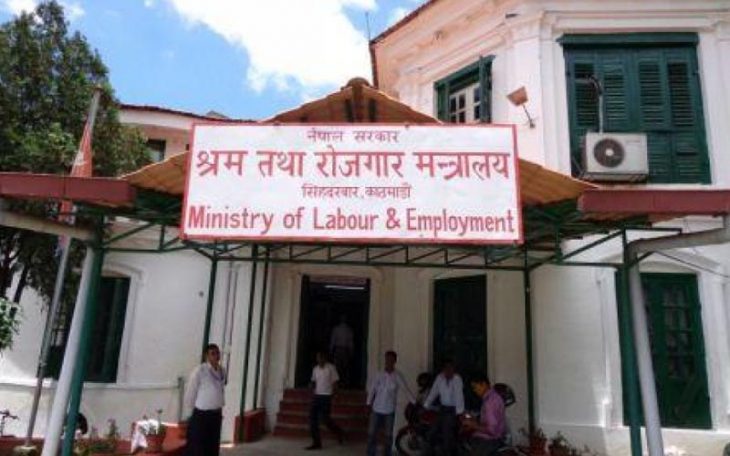Kathmandu, August 3, 2018: The Ministry of Labour, Employment and Social Security has proposed to raise the license fees for new agencies in the foreign employment business to Rs 60 million. With this any new foreign employment agency business will have to pay 20 times more license fees. Earlier, recruiting agencies, seeking new license for entering foreign employment business, paid Rs 3 million—Rs 700,000 in cash deposit and Rs 2.3 million in bank guarantee as deposit.
The proposed hike aims to limit the number of recruiting agencies because many have cheated migrant workers in the recent past. Labour Ministry Spokesperson Prakash Dahal said,” “Besides restricting the number of recruiting agencies, we aim to eliminate fraud and cheating in foreign employment sector.” This also aims to and seek greater accountability and voluntary merger of agencies. “The proposal gives agencies an opportunity for mergers. Most of them are not even operating. Once they come together, it would be easier for the government to monitor their work,” said Dahal.
It is evident that there are 1,415 recruiting agencies as per the The Department of Foreign Employment (DoFE) and large number of agencies are either defunct or sending a small number of workers abroad.
According to government new fee proposal also considers the current foreign employment situation, high documentation expenses of migrant workers, the problems they face while dealing with unscrupulous agencies and crisis management when migrant workers have to be rescued from foreign countries where they are based.
In another side, the forum of recruiting agencies – the Nepal Association of Foreign Employment Agencies (NAFEA) – on Wednesday held an emergency meeting and NAFEA President Rohan Gurung said owners of many agencies plan to return their licenses to the government. He suggested the government to stop issuing licenses to new operators if the government was keen to limit the number of agencies because of difficulties in monitoring them.







